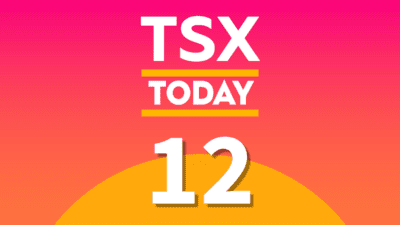Buybacks have been a hot commodity in recent years, and nowhere is that more true than with the S&P 500, whose constituent companies have been allocating record amounts of capital buying back their own stocks.
However, that could be about to change.
According to FactSet’s latest edition of Buyback Quarterly, the number of S&P 500 companies making share repurchases of $1 billion or greater (33) during Q2 was the second-lowest quarterly number over the past 12 quarters.
Here in Canada, just as buyback fever appears to be waning, ETF companies are hopping on the bandwagon. In September, First Asset launched two buyback ETFs: First Asset Canadian Buyback Index ETF (TSX:FBE) and First Asset U.S. Buyback Index ETF (TSX:FBU). Both track indexes created by CIBC World Markets.
I’m not a fan of buybacks because they’re almost always done at inflated prices, but a lot of investors like them because they’re a tax-deferred shareholder reward (increase in EPS pushes the stock price higher), unlike dividends.
The grandaddy of buyback ETFs is the PowerShares Buyback Achievers ETF (NYSEARCA:PKW), which turns 10 this December. It has US$1.4 billion in assets under management, making it not only the biggest buyback ETF in the world, but also a player in the all-cap ETF space.
Its performance since December 20, 2006, its inception date, is 7.6% on an annualized basis, 119 basis points higher than the S&P 500. Clearly, there’s some merit to owning buyback-related investments.
Let’s go back to Canada and the First Asset duo of ETFs launched in September.
Where do these ETFs fit into my portfolio?
While there are compelling reasons for owning buyback ETFs (for example, they’ve outperformed the broader market), they’re not representative of the market as a whole and can underperform during periods of low growth and low interest rates, and that’s exactly where we are today.
If you want to own a buyback ETF, make it a small part of your overall portfolio. With indications that buybacks are slowing, the First Asset ETFs might be starting out climbing a very steep hill.
Which First Asset ETF should I buy?
Both the Canadian (FBE) and American (FBU) versions have exactly the same management expense ratio of 0.60%. They both trade in Canadian dollars. However, FBU is buying U.S. stocks, which trade in U.S. dollars; this means there’s foreign currency risk attached to those purchases. Wisely, First Asset ETFs hedge back to the Canadian dollar, so the risk is minimal.
Looking at the two CIBC indexes and their performance backtested to June 22, 2000, the CIBC U.S. Buyback Index generated a total return of 388% compared to 254% for the CIBC Canadian Buyback Index. That’s with the currency factored in. Without it, the performance was even worse with the margin of defeat that was 185 percentage points instead of 134.
Although it’s hard to know what’s going to happen with U.S. and Canadian stock prices as well as future buyback activity in both countries, I’d probably go with the U.S. version (FBU), unless you already have significant U.S. equity exposure; it’s not because I think the U.S. version will continue to outperform, but because it keeps you more geographically diversified.
Which should you choose?
I’d go with FBU for a couple of reasons.
First, in the case of FBU, First Asset handles the conversion back to Canadian dollars. In the case of PKW, your broker would handle that for a fee.
More importantly, the CIBC U.S. Buyback Index’s performance from December 20, 2006, PKW’s inception date, to November 22, 2016, was 151% on a cumulative basis; PKW’s total return on a cumulative basis was 102%, or about one-third the performance over the same period.
In my books, FBU beats FBE.







